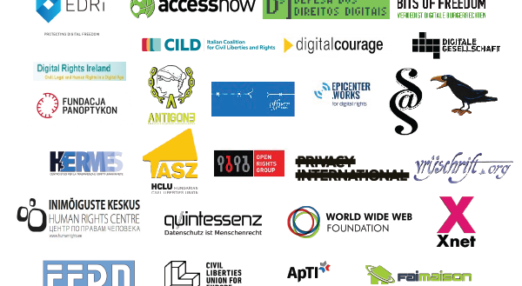Privacy and confidentiality
Privacy is a crucial element of our personal security, enabling free speech and democratic participation. The absolute and fundamental human right to privacy guarantees people respect for their private life and freedom from snooping and unlawful interference. It gives everyone the freedom to be themselves, to express and develop their opinions and ideas with dignity, and to practice their religion, as well as giving journalists and civil society the ability to report on violations of rights by states or businesses. Without sufficient privacy, people’s private interactions are exposed, which can be used to target or discriminate against them.
Filter resources
-

ISOC BG: Big speeds, Big Brother, big Bulgarian activism
In this blogpost published on the occasion of the 15th anniversary of EDRi we present our member ISOC Bulgaria.
Read more
-

FIPR: Advocacy against the ‘Database State’
In this blogpost published on the occasion of the 15th anniversary of EDRi we present our member FiPR.
Read more
-

ePrivacy reform: Open letter to EU member states
Today, 27 March 2018, EDRi, together with other civil society organisations, sent an open letter to all attachés working on the ePrivacy reform for the permanent representation of EU Member States in Brussels. Open letter to European member states on the ePrivacy reform 27 March 2018 Dear Minister, Dear Member of the WP TELE, We, […]
Read more
-

EU Council indecision on ePrivacy is bad for Europe
In 2017, the United States National Telecommunications and Information Administration (NTIA), which is part of the Department of Commerce, warned of the “chill on discourse and economic activity” caused by privacy and security fears.
Read more
-

EU Commission’s Recommendation: Let’s put internet giants in charge of censoring Europe
On 1 March 2018, the European Commission proposed a "Recommendation" on the surveillance and filtering of the internet by online companies.
Read more
-

The Bulgarian EU Council presidency & the latest assault on ePrivacy
In January 2018, the Bulgarian Presidency of the Council of the European Union (EU) picked up where the Estonian Presidency left off on the ePrivacy Regulation. It issued two examinations of the last Estonian “compromise” proposal and asked national delegations for guidance on some issues. Together, the documents cover most of the key points of […]
Read more
-

ENDitorial: Living as if being at an airport
The internet is starting to look more and more like an airport. Not only because of the ubiquitous surveillance, but also in the way that advertising is trying to steal our attention. Should we start working on a right to not be addressed?
Read more
-

UN Security Council mandates worldwide air traveller profiling
In the name of “preventing, detecting and investigating terrorist offenses and related travel”, all United Nations (UN) Member States should develop systems for processing and analysing Passenger Name Record (PNR), Advance Passenger Information (API) and “fingerprints, photographs, facial recognition, and other relevant identifying biometric data”, according to a UN Security Council resolution (no. 2396) on […]
Read more
-

e-Privacy: What happened and what happens next
With the vote on the mandate for trilogues in the European Parliament Plenary session of 26 October 2017, the European Parliament confirmed its strong position on e-Privacy for the following inter-institutional negotiations, also called trilogues.
Read more
-

Is anti-plagiarism software legal under EU Copyright legislation?
Are anti-plagiarism technologies compatible with copyright law? Surprisingly, this might not be the case. Anti-plagiarism technology involves machine comparison of works such as diploma theses with pre-existing publications. This activity constitutes a use that is covered by copyright. Since no explicit limitation or exception of authors’ and publishers’ exclusive rights authorises providers and users of […]
Read more
-

EU Member States plan to ignore EU Court data retention rulings
Documents made publicly available through EDRi member Statewatch reveal that EU Member States are exploring all possible options to keep, and in fact expand, their current data retention regimes. The general plan is based on a new concept of ”restricted data retention”, which is really blanket data retention with a new name, along with amendments […]
Read more
-

Estonian eID article – additional information
Our article on the problems with the Estonian eID card attracted some criticism and non-specific allegations of inaccuracies. We recognise the sensitivities of the Estonian authorities on this issue, but stand behind the article. For the sake of completeness and to allow our analysis to be verified, here is the timescale that we describe in […]
Read more
